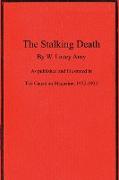Bolos & Barishynas
BücherAngebote / Angebote:
A FOREWORD FOR all the sins of omission and commission that-this little book reveals I crave forgiveness. With the materials that came to my hand I have endeavoured to weave a chronicle of the events that occurred on the Dvina in the memorable summer of 1919. I proffer my sincerest thanks to all those officers and men who produced the narratives, without which it would have been impossible to write this history. To the Editor of Blachoods Magazine I am particularly grateful for permission to take extracts from The Little Adventure. If this little book succeeds, as I hope it will, in reviving the memory of the Dvina days to those who served in North Russia, then indeed I shall feel that my work has not been in vain.CHAPTER I HOW WE WENT TO RUSSIA. PARK ROYAL, N.W. Empty huts, deserted parade grounds, overgrown lawns, occasional daffodils. There, in the April sunshine and showers of peace year, the Russian Relief Force was born. Imagine the stupendous and inspiring drama of the year of tragedy, 1914, re-staged in miniature. The setting and the costumes are the same. The same crowds invade the deserted camp. Out from the obscurity of the streets of the cities and the lanes of freshening country they come to this camp, set in a suburb of London. From all borders, all counties, all shires they come, strange in their dialects, strange in their garb, strange in their first shyness. They hide, as the race ever does, emotion and feeling. Just a handful at first-perhaps twenty or thirty but behind and around them one sees the ghosts of the far-away days of early war. They materialize in ones vision. The arts, the professions, the trades, each pouring out its torrent of men, marching awkwardly, solemnly, clad in every variety of civilian clothing.Then, with a tremor and the queerest of pulsations in the throat, one realizes the years that lie between. The mind steals back to the fateful days that marked for most the opening of the Great Adventure. One remembers those familiar battlefields-Ypres, Festubert, High Wood, Thiepval, Cambrai--on which that drama was played out and where lie its actors. These are the ghosts of the men who have passed- the men whose splendid virility, whose promise of fruitful manhood lies in the bosom of France. , And it is here, in their silent and invisible presence that the curtain rises on another drama. Who are these men? Perhaps to the outsiders eye they look much the same as the men of 1914. They are still in mufti. Worn clothes, jackets in which the pockets droop pitiabIy, collars devoid of all ties, ties to which no collars give effect, baggy trousers, boots thin and cracked. Derby hats of pre-war vintage, caps of faded hues, even the decayed Homburg hat -five years older and sensibly more decayed. They still look anything but soldiers. But there is a strangely perceptible difference. For shoulders are straighter and broader, heads more erect, an absence of slouching...........
Folgt in ca. 10 Arbeitstagen




